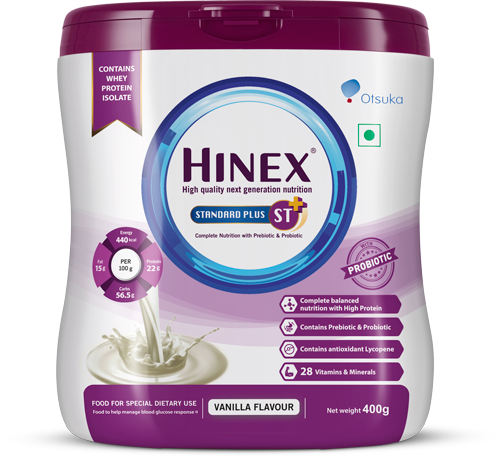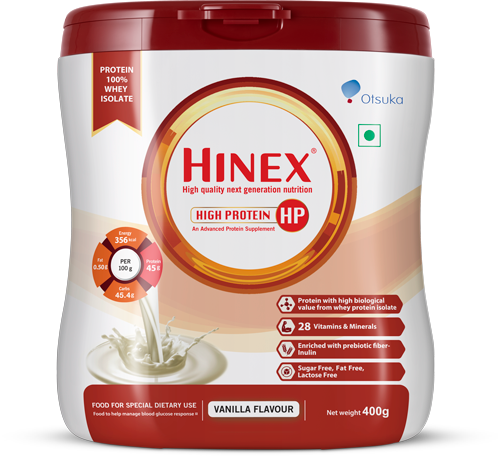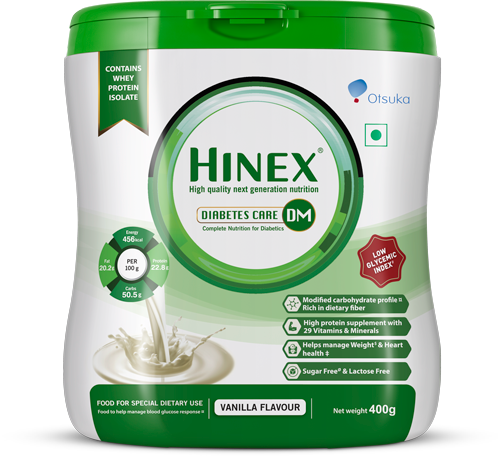
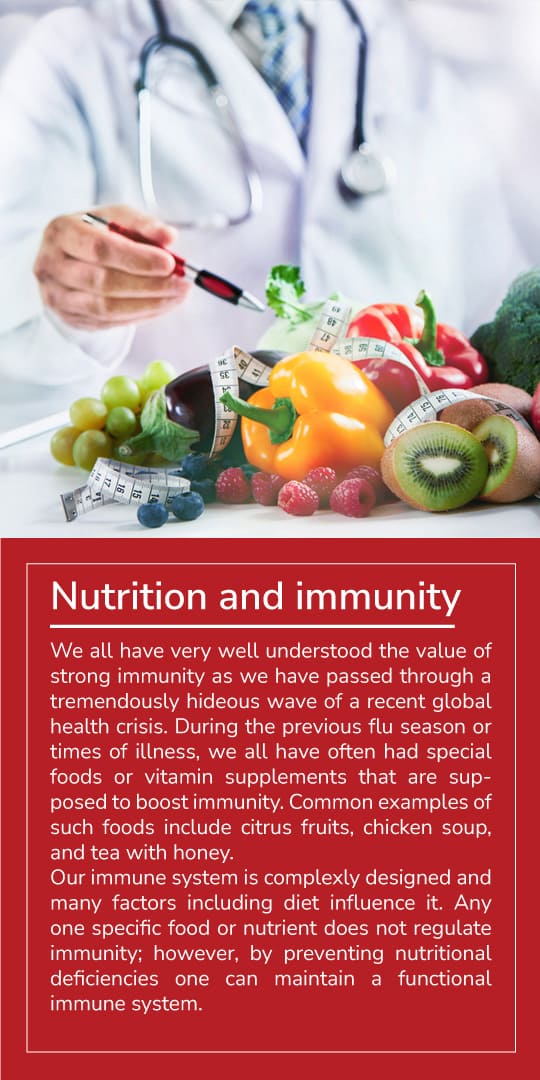
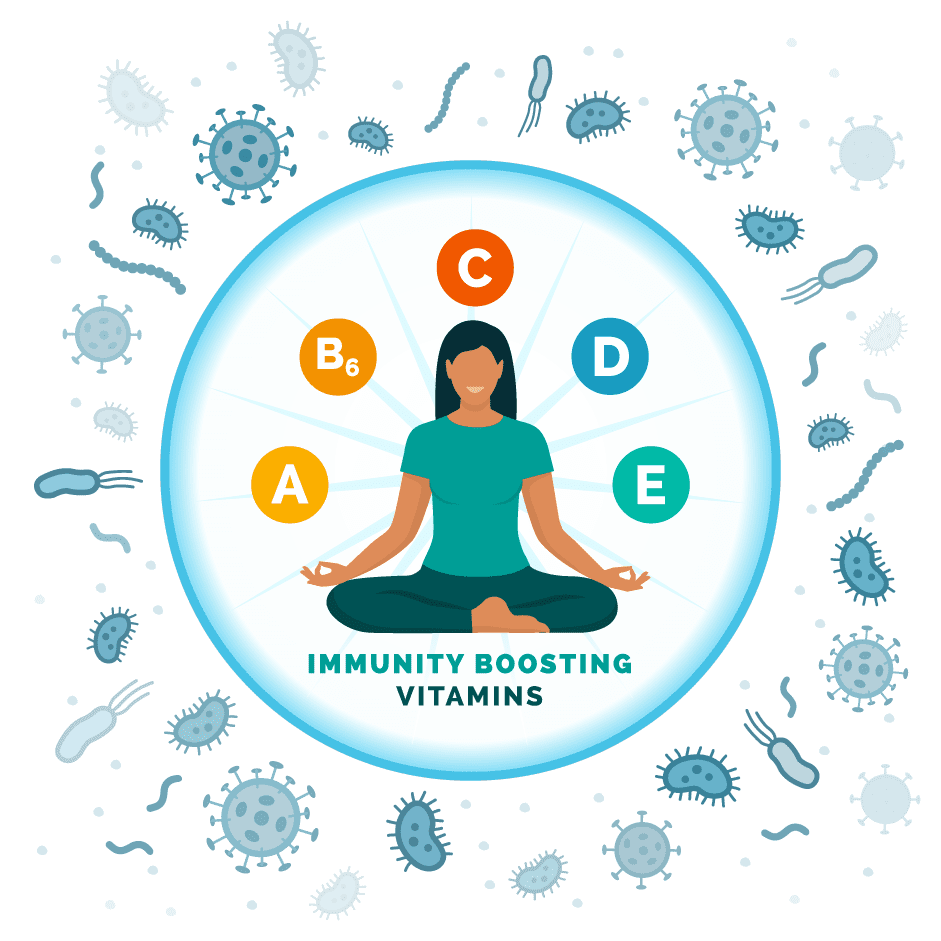
Can certain foods/nutrients help in boosting immunity?
All cells in the body, including immune cells, need enough nutrients to function properly. The body may be better prepared for microbial attacks and excessive inflammation if certain dietary patterns are followed, but it is unlikely that particular foods provide any special protection. Numerous macronutrients and micronutrients are necessary at each stage of the immune response. Vitamin C, vitamin D, zinc, selenium, iron, and protein have all been found to be essential for immune cells growth and function and one can get these by eating a wide range of plant and animal foods.
A healthy immune system can be adversely affected by diets that lack nutrients, such as those that primarily include foods that have been extremely processed. Additionally, it is believed that a diet low in fruits and vegetables and high in refined sugar and red meat can cause chronic gut inflammation and further may lead to immune suppression by disrupting healthy intestinal microorganisms.
Hence, incorporating probiotic and prebiotic foods into one’s diet might be beneficial. Prebiotic foods contain fiber and oligosaccharides that feed and maintain healthy colonies of beneficial bacteria, while probiotic foods contain live helpful bacteria.1
Do vitamins and minerals help?
The immune system’s response can be altered by deficiency of vitamins and minerals. Zinc, selenium, iron, copper, folic acid, and vitamins A, B6, C, D, and E deficiencies have been found to alter immune responses. The vitamins and minerals can benefit the immune system in a number of ways: Supporting the growth and activity of immune cells, supporting the production of antibodies, and serving as an antioxidant to safeguard healthy cells. Poor nutrition is associated with an increased risk of bacterial, viral, and other infections.1
A Healthy Eating Plate includes a high-quality diet that can help prevent deficiencies in these nutrients. However, in certain circumstances, it may not be possible to consume enough vitamins and minerals through diet (e.g. people who have increased nutrient requirements due to illness or people with certain chronic conditions).1
Oral nutritional supplements may be used in these situations but with the doctor’s advice only. Keep in mind that vitamin and mineral supplements cannot replace a healthy diet because they do not contain all of the benefits of healthy food.

Steps to follow for a healthy immune system
References
1. Being Healthy Doesn’t Mean Giving Up the Foods You Love. Available at: https://whatleyhealth.org/2021/02/being-healthy-doesnt-mean-giving-up-the-foods-you-love/; accessed on Nov 15, 2022.
2. Nutrition and Immunity. Available at: https://www.hsph.harvard.edu/nutritionsource/nutrition-and-immunity/; accessed on Nov 15, 2022.
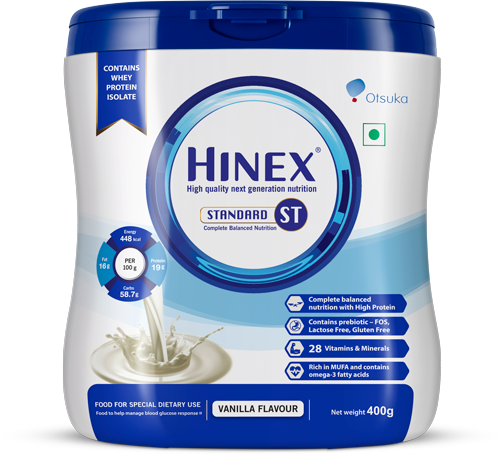
 Buy Now
Buy Now Buy Now
Buy Now